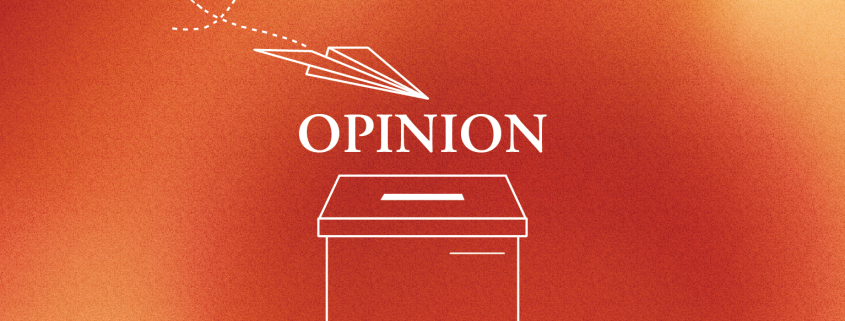Lessons Learned: Ojalá — Hopefully
Ojalá — I wish. Its use is followed by the subjunctive mood of a verb. The subjunctive expresses wishes, desire, emotions and doubts. So ojalá que means “I hope that.” And I hope you are well, that you rest in peace. I am dedicating this piece to my high school Spanish teacher of three years, who recently passed from pancreatic cancer.
Ojalá comes from the Arabic expression “inshallah,” which means “if Allah (God) wills it.” It is believed to have been adopted by the Spanish language during the Moorish occupation of Spain, what was at the time called al-Andalus.
Señora, you’ve always been a devout believer in God. Ojalá tenga razón — I hope that you are right. That you are right in your beliefs, and that you fulfilled your mission. I’m sure you went above and beyond, so ojalá que descanse en paz, I hope you rest in peace.
I’ve been learning Spanish for four and a half years. Four in high school and a semester at USC (I unfortunately did not pass the placement exam). Not once have I regretted it. As a California native, learning Spanish opened my eyes to the millions of people who walk past me unnoticed, living under my radar, only separated by language. By learning Spanish, it gave these people a voice to my ears, and they were mute no longer. And so, with my broken Spanish, I do my best. My best to listen and my best to learn. Because there is so much we can learn from cultures that aren’t our own.
I grew up in San Jose, California. My high school population was about 55% Hispanic (mainly Mexican) and 38% Asian (mainly Vietnamese). This odd combination is representative of the city I grew up in, or at least the city I know. You could drive down Story Road to find huge swaths of Vietnamese shops and restaurants, before the signs looked less and less Vietnamese, becoming more and more Spanish. And despite our many differences, the one thing that brought us together was good food. So after weeks of eating phở at home, I would sneak off to buy Mexican food at the taqueria down my neighborhood. I would find many others that looked like me there as well, and that’s one thing you don’t really see at USC.
USC is a bubble of white-ness. I took “Spanish III” my freshman year at USC, the third semester of Spanish that stood in the way of students fulfilling their foreign language requirement. It was absolutely insane to me that in that 8 a.m. class, there was only one student who identified as Latine. What was even more insane to me was that in a city that is predominantly Latine, the only people I saw from the Latine community were the kids from surrounding schools skating around the outskirts of USC and the handful that USC organizations decide to display as an effort of service and philanthropy. Because why should kids from underrepresented, marginalized groups be used as a “learning opportunity” for privileged students, out of touch with reality? ¡Ay Dios mío!
If you are a California transplant, I urge you to learn a bit of Spanish. To engage in its vibrant culture and start important conversations. Because I promise you, there is so much more to Los Angeles than Santa Monica and Beverly Hills, than Koreatown or Little Tokyo. If you haven’t yet, check out Calle Olvera at the El Pueblo historical site. El Pueblo is known as the “birthplace of Los Angeles” for a reason. Los Angeles is so much more than what meets the eye. I hope more people realize that. That the large swathes between USC and the beach are bustling with life, filled with people living their everyday lives. That these people live, love and laugh (in Spanish) the same way we do. And at the end of the day, we aren’t that different after all — surprising, right?
And to my high school Spanish teacher who put her heart and soul into teaching, muchas gracias por todo. Me dio un mundo nuevo. Un mundo muy grande. I wish that I could tell you, “hasta mañana” once more. But since I can’t, I’ll carry with me the words you drilled into me every morning: “Poco a poco, se va muy lejos” and “Sí, se puede.” Ojalá — I wish — you were there to see it. Although it’s been years since I’ve left high school and I’m beginning to push 30 (I’m only 22), I hold these lessons dear to me, and hopefully I can pass them along to the next generation like you did for me and many others.
Man Truong is a junior writing on reflections made in life. In a world full of different personal beliefs and philosophies, he makes sense of it in his column, “Lessons Learned” which runs every other Friday.

